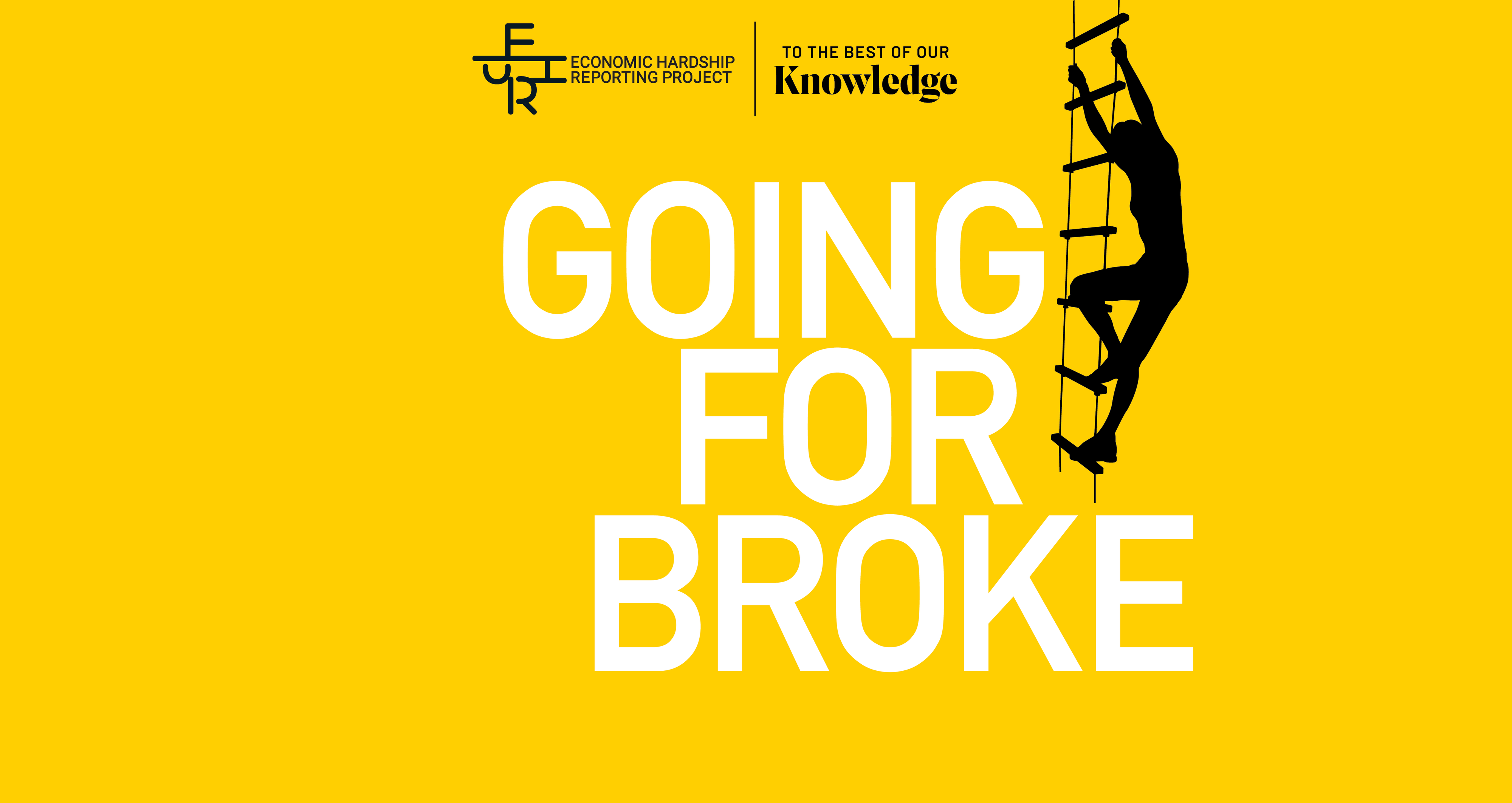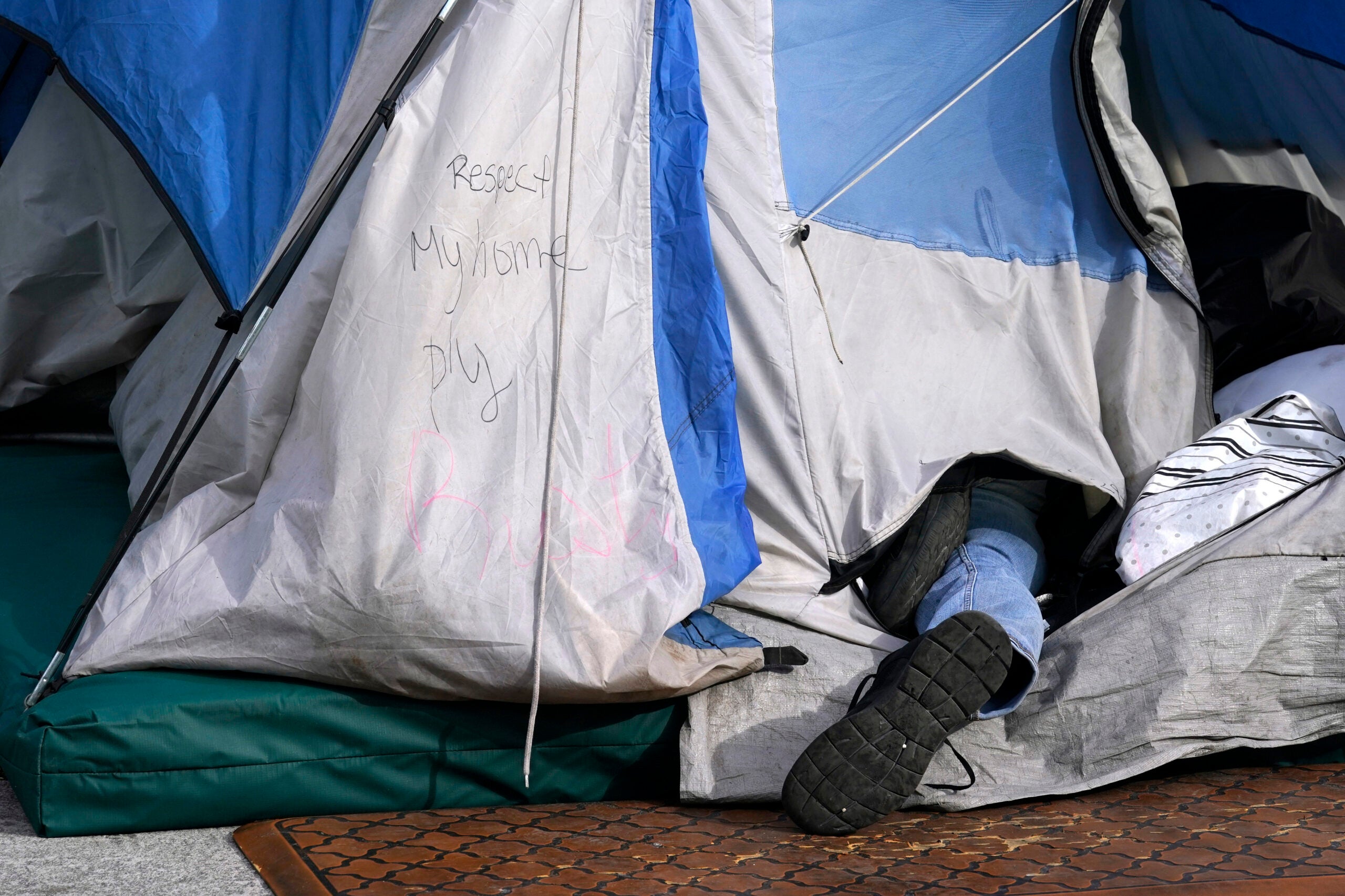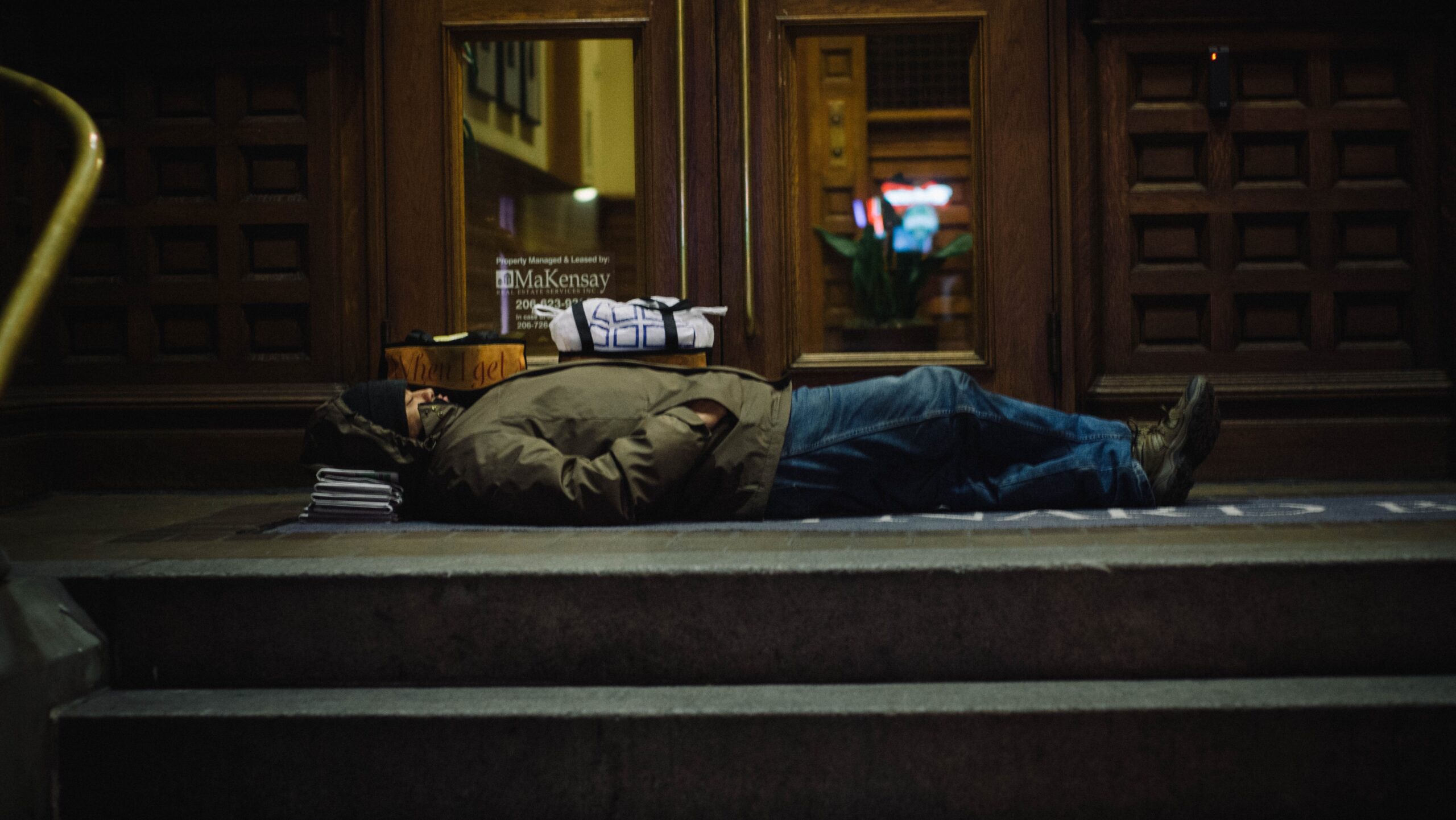“Going for Broke” is a public radio series and podcast co-produced by “To The Best of Our Knowledge” and the Economic Hardship Reporting Project. In the series, we focus on the concept of care as a social and economic good.
We wanted to ground the series in personal stories paired with economic philosophy and a few public policy ideas. Most importantly, we wanted the series to have a heart, a tone of empathy and a tangible sense of human connection, which is why I was so excited to have Ray Suarez host it.
In season one, Suarez talked a bit about his own experience of unemployment and financial crisis. He and I sat down to talk more when we were cutting promos for this season.
Stay informed on the latest news
Sign up for WPR’s email newsletter.
Editor’s note: This transcript has been edited for brevity and length.
Anne Strainchamps: Ray, how do you see your role as a journalist when it comes to reporting on economic inequality?
Ray Suarez: Actually, it’s right up my alley with a lot of the reporting that I’ve done over the years. I was a street reporter in Chicago for seven years during a time of real distress in a lot of communities and also covered those issues, wealth and poverty for the PBS NewsHour for many years, as well. And I wrote a book on white flight and gentrification.
You know, this is right under our noses all the time, but you’d never know it from looking at our media.
AS: I know. And why is that, do you think?
RS: Because for a lot of people, it’s a downer, or they think they know the story already, so they’re not interested or advertisers don’t want their ads running next to it. I don’t know. It could be a lot of things, could be all of those things.
AS: And so what’s most important to you in reporting on people who are on the margins or invisible for some reason or another?
RS: I think right at the heart of what our assignment is as reporters in this country is to offer readers, listeners and viewers an accurate, true life vision of the country they live in so they can make decisions about being a citizen. If they don’t understand the place they live in, it makes the work of being a citizen that much harder.
So I think reporters are absolutely central to that task and absolutely central to creating not just an understanding, but an accurate understanding of what the state of play is in this country at any given time.
AS: Accurate is crucial because I think there’s so many misconceptions about financial precarity. I think one of the things that I’m hoping this series will do is point out how much financial precarity is everywhere. That hardship does not just look like the homeless guy with a sign asking for money at the intersection, although it looks like that, too. But it also looks like the adjunct professor living in her car, (or) your neighbor who owns her own home but may not have enough to eat.
RS: Or the adjunct who’s flailing ferociously teaching at four different schools and driving a beat up car 70 miles a day between them all, trying to piece it all together and keep her chin or his chin above water. That’s the part where precarity comes in. I know a lot of adjuncts who teach as sort of a side hustle, a fun thing to do and make a little extra dough to pay for some vacation. And that’s a far cry from the world of people who are working almost like in academic serfdom.
The problem with that kind of story is that it doesn’t elicit a lot of sympathy from too many Americans because they don’t think of that as work and they don’t think of that as a job. And it’s become quite stylish to be contemptuous of academics and contemptuous of people who do mental work, who do intellectual work.
So the adjunct is in some ways the poster child of 21st century precarity, because they’ve played by all the rules. They went and got the degrees, got the qualifications they needed to do this work, and then entered the labor force in their chosen field at a time when it was being smashed to bits by the people who control the game. That is, the people who run the schools where they work. That’s not something they could have anticipated. It’s not something they could have changed or fixed.
I think that is really at the heart of the stories that we’ve been telling all along in the “Going for Broke” project — people forced to rock back on their heels, reconsider everything and make the best of it.
AS: It’s funny how much judgment there is when in the end it’s just how much money you make. It seems like there’s so much of the old American deep Puritan values, you know, the idea that if you’re poor, it’s something you did wrong.
RS: Right, the idea that it’s your fault. And also, we are, to a degree, victims of our own expectations. You can take two people in the same workplace working shoulder to shoulder and making very similar wages. And one might consider themselves a failure because of how they grew up and where they grew up and what they thought they would be doing, while another thinks they got the golden ticket. That’s the theater that lives between our ears all the time — who we think we are, what we ought to be doing, what success means. Sometimes it’s hard to capture that in a story, because especially in economic reporting, we deal a lot with income quartiles and income quintiles and the years of tenure in the workplace and all that.
But then there’s a whole social drama that goes on with the expectations game and whether people are disappointed in how things have worked out and disappointed in themselves and where they thought they would be at any given age and so on.
AS: Well, I think that’s been so hard for the millennial generation in particular, because if I look at my parents, that was a generation of people who did pretty well. And my kids and their friends are gig economy workers.
RS: You know, it’s funny you should bring that up because I’ve been spending a lot of time with my father just in the recent past weeks because he hasn’t been well. He’s a guy who can’t believe how lucky he is. He probably finished the 10th grade and he owned a house. He owned a business. He thinks America’s just been a phenomenal place for him where the dreams he had as a little boy could only have happened here.
So his view of what the country means and how it succeeds and for who is shaped by that experience. While his own grandchildren, they are 19 to 33 years old, (are) facing the constant renegotiation of: where is the floor and where is the ceiling and what does it mean to get ahead? And what do I have to do to be a participant in this economy?
I think to the New York of my youth, when I was growing up in the 60s and people still had rent parties.
AS: Rent parties where you ask all your friends to come and everybody puts money in the basket to help you pay the rent?
RS: You throw a party, you put out food, you put on music, people come and then, yeah, it’s like an undefined contribution. But everybody who comes and dances and has snacks or brings food throws a couple of bucks in the pot and you can make rent. Recently, there was an article detailing how the average rent on the island of Manhattan is now $5,000 a month. And you’d have to hire Carnegie Hall to have a rent party to make your rent there.
So I really worry about people falling through the cracks. Just the demands of keeping up are so disproportionately high.
And (monthly car payments are) not the $30 or $40 that it was back when you bought a Malibu in 1964. And these same people that we’re expecting to keep pace are also paying down school debt at the same time. So there’s a lot on our plates as a people. It happened slowly, like turning up the heat under a boiled egg. It’s not going to be something that we can build down or back out of quickly, either, because the structures that grow up around a new style of life are often pretty rigid.
AS: Well, what I’m hoping for this series is that as we listen to the interviews that you and the book team have assembled, we think some about what caring means and what it would really mean to live in a caring economy. What would that mean for health care and for education, for shelter, for so many parts of our life?
RS: I’ve always told young reporters and I’ve always told audiences that I talked to about the news business, that consuming the news is an exercise of “me, not me.” And what do I mean by that? As it’s streaming by, as you’re reading an article, as you’re cooking something in the kitchen and the radio is on the shelf, and you’re listening to a story as you chop onions, you’re doing a constant exercise of well, that’s like me. Or, oh, that’s not anything like me at all. And depending on your state of mind, you either lean in closer or you recoil from it.
You either create a moment of sympathy or empathy or human connection, or you say, “Oh, my goodness, what a terrible life. Not me.”
And it changes the level of investment, the level of implication. Does this implicate me in some way? Am I a party to this structure that created this predicament for this fellow human being? Or does this have absolutely nothing to do with me? Or will I now work hard to convince myself that this has absolutely nothing to do with me, which is a sort of different exercise?
But me, not me, I think is a really important part of what we do when we listen to stories on the news.
So I’m hoping that when people listen to this series “Going for Broke,” that they may have very different life experiences. So that’s not me, but it could be me. And what would I do if it was me? Would I be able to withstand the setbacks, the pressure, the disappointment that some of our storytellers have had to face in their lives? Would I crumble under this? Would I get a stiffer spine and stand up straighter? What would happen to me?
And if it does that, we’ve done a lot of our job.





